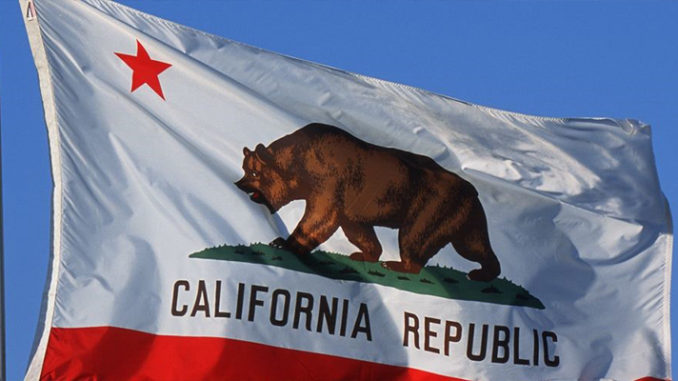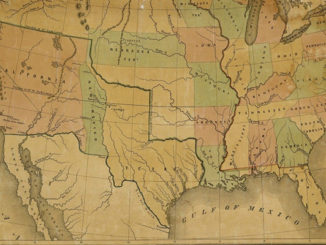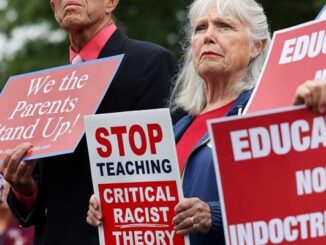
by Alex Gonzalez
Below is a recent clip from Morning Joe on the book “JFK In Ireland: Four Days that Changed a President” on Morning Joe, about President Kennedy evoking his ancestral identity as an Irishman. The book talks about the American Irish experience of a family who was uncomfortable displaying their identity, at first. But the story also talks about a man who fully embraced his ancestral ethnic identity as Irishman by the 4th generation. Yet, It took four generations for the Kennedys to become a brand in American society and politics, and it also it took the Kennedys four generations to get rid of their cultural inhibitions of the Irish Diaspora identity and make a Kennedy a confident American who saw no conflict between his American identity and his ethnic lineage.
When John F. Kennedy traveled to Berlin in 1973, he was asked, “Do you want to come home to Ireland?” During his four-day trip to Ireland, Kennedy went from being a statesman making official speeches to embracing his “Irish-ness.” The trip to Dublin was so emotional for Kennedy that “it truly made him Irish.” During the Kennedy upbringing, his parents objected to the name “Patrick” since they thought it would be perceived as too Irish. However, two months after the Dublin trip, Caroline Kennedy gave birth to a baby named Patrick, “the completion of an Irish culture.” Essentially, JFK embraced an “Irish-ness” that his parents had felt uncomfortable embracing two generations back. Irish American are not unique in the embracing of their ancestral homeland.
Samuel Huntington argued that National identities are constructed by ideology; and Identity is an individual’s or group’s sense of the self. Benedict Anderson’s Imagine Communities also argues that Identities are imagining selves. They are what we think we are and what we want to be. People may inherit ethnic identity, and they can embrace it or reject it. Moreover, identities are defined by the self but they are also the product of interactions between the self and the others. How others perceive an individual or a group affect the self-definition of that individual or group.
National identity is an “invention” as Benedict Anderson argues in Imagined Communities, or “constructed” as Huntington argues—and often they are mere bureaucratic procedures. So Individuals have a natural tendency to seek spiritual connection with those with whom they share similar ancestral roots, as Kennedy did. Thus, nation-ness is a cultural artifact that used to be invented by kings (and now is invented by governments) through an national myth or ideology, or by religious leaders as it the case of the Jews; and identity is the voluntary individual’s desire wanting to be part of something bigger.
But death brings individuals abruptly face to face with central problems posed by nationalism because a citizen cannot live forever, but a nation can live forever under a romantic version of a country, nationalism. A man’s death is usually arbitrary, his mortality is inescapable. So for centuries religion was concerned with the idea of man-in-the-cosmos, and the contingencies of life; and man’s harsh reality of life. Thus, religion responds to this harsh terrestrial reality by transforming fatality into continuity (karma, original sin etc..). And governments do the same in the form of nationalism; and as Anderson believed, “In this, way religion is concerned with dead and the yet unborn, and continuity in the cosmos”. Thus, appreciation for one’s ancestral ethnicity is also an spiritual idea that requires continuity in the afterlife. Religious ideas, then, after dead is what connects an individuals with ethnic ancestral identity because religion offers the means by which by those like Kennedy can reconnected with their ethnic history—lineage–of past generations.
By the 3rd or 4th generations, Irishman like Kennedy felt comfortable embracing his cultural lineage with no fears of being accused of dual loyalism between his American identity—which is a constructed national identity as Huntington argues–and his ancestral roots which is cultural and religious by necessity.
And it is only this kind of religious fraternal cross-generational appreciation of one’s ethnic “self” that make all Jewish-Americans, and around the world, wanting the be sons and daughters of Israel. Too, Fourth generations of Irish-Americans, just like Kennedy, make this romanticized cultural pilgrimage to Ireland wanting to connected with their ancestors. So fraternal cultural cohesiveness is what subsequently has matured into a cultural historical cohesiveness that is important for groups to garner political power.
As in the case of Kennedy, whose ethnic identity was perceived by his own parents too Irish—their ancestral homeland—so the parents objected to be seen as too ethnic because the manner by which others perceived them would affect their own perception of their “self.” So the parents objected to embracing their ethnic “self” because being Irish was not too popular in those days.
Unfortunately, Mexican-Americans in the U.S. still lack the cultural confidence, in politics, of the Irish-Americans and Jewish-Americans to comfortably assert their identity and push back any suspicion of double loyalties. Even Samuel Huntington agreed that Mexican-Americans are the only ethnic group with legitimate historical emotional attachment to the southwest. Yet often they are forced to reject their identity so as to prove their patriotism, especially in so-called “conservative” circles. However, as in Huntington’s argument about identity, because one’s identity also depends how others perceive you, even if Mexican-Americans don’t want to be perceived as Mexicans, they are already perceived as Mexicans by the others because that is what prompted other to asked them not to be too Mexican.
 Thus, when a Mexican-Americans denounces their Mexican-ness–for and alleged patriotism–as prerequisite to join a political Party, or organization, they are denouncing their own “self” because their identity is not only conditioned by how they see themselves but also by how others perceive them. And, they will be perceived as Mexican even after they denounce it because, according the Huntington, how others perceive an individual or a group affect the self-definition of that individual or group. So the more they denounce it, the weaker and more fractured their identity become since one can never change —physically– his ancestral ethnic identity. But more importantly, when Mexican-American denounce their identity, they forgo their 150-years claims to this country and 300-years of Mexican culture and history in the Southwest. Essentially, they are forfeiting their ethnic confidence that comes from the history of being part of the nation before the Southwest part of the U.S., Which is the opposite of what Irish like Kennedy did when the embraced their ancestry.
Thus, when a Mexican-Americans denounces their Mexican-ness–for and alleged patriotism–as prerequisite to join a political Party, or organization, they are denouncing their own “self” because their identity is not only conditioned by how they see themselves but also by how others perceive them. And, they will be perceived as Mexican even after they denounce it because, according the Huntington, how others perceive an individual or a group affect the self-definition of that individual or group. So the more they denounce it, the weaker and more fractured their identity become since one can never change —physically– his ancestral ethnic identity. But more importantly, when Mexican-American denounce their identity, they forgo their 150-years claims to this country and 300-years of Mexican culture and history in the Southwest. Essentially, they are forfeiting their ethnic confidence that comes from the history of being part of the nation before the Southwest part of the U.S., Which is the opposite of what Irish like Kennedy did when the embraced their ancestry.
Moreover, at conservative political events Mexican-Americans are asked to refrain from mentioning their ethnicity while embracing other ethnic groups. For example, many religious and conservative gatherings, Mexican-Americans are told not to think of themselves as Mexican because conservative values are based on universal principles accessible to everyone equally. But, in the same events Mexican-Americans are asked to show allegiances other ethnic religious group like Jewish-American by embracing the Causes of Israel. As a result, conservative Party and religious leaders have asked Mexican-Americans to relinquish their Mexican-ness while at the same time imposing other ethnic identity on their Mexican values, and thus, creating a fractured weak confused identity among Mexican Americans on conservative circles.
When Kennedy embraced his Irish-ness in Dublin and later called his son Patrick (something that his parents rejected), Kennedy—culturally–reclaimed his 500 years of Irish History, and thus he was embraced in Ireland as one of them. This fit Anderson’s theory of the religious fraternal linage bond that can be relived even after dead (nationalism). But Mexicans who reject their identity do not fit any of the identity-theories by Huntington or Anderson because it is illogical for one group to denounce their own “self” identity to fit into political identity. Huntington believed that identities are constructed by ideology (governments) and identity is an individual’s or group’s sense of the self, or it is product of self-consciousness—wanting to be part of group. But Anderson believes that ethnicity is spiritual connection with those whom we share similar ancestral roots (historical or religious), as Kennedy did.
Ethnic Groups become confident culturally, politically cohesive when they learn from the past. Therefore, Mexican-Americans, as citizens of the United States, who objected to their ancestral history as Mexicans, are limiting their future to their short mortality because they have been told to abandon their history as group. But because they have abandoned their past Mexican-ness, they cannot have fraternal future since they have no cultural foundation for any historical claims to this land real and original Americans settlers in Southwest.
It took Kennedy four generations to be confident enough to assert his ethnic past. It is difficult to foresee how many generations still it will take for Mexican-Americans to feel free of cultural inhibition to gain enough confidence to embrace their identity and no have their identity challenges with suspicions of dual loyalism. Kennedy’s connection to Ireland was his fraternal spiritual roots of his ancestral homeland. Jewish-American’s connection with Israel is of religious celestial type. What do Mexican-Americans have if they continue rejecting their past? They will have no historical or claims to this country.
Alex Gonzalez is a political Analyst and Political Director for Latinos Ready To Vote. Comments to [email protected] or @AlexGonzTXCA



